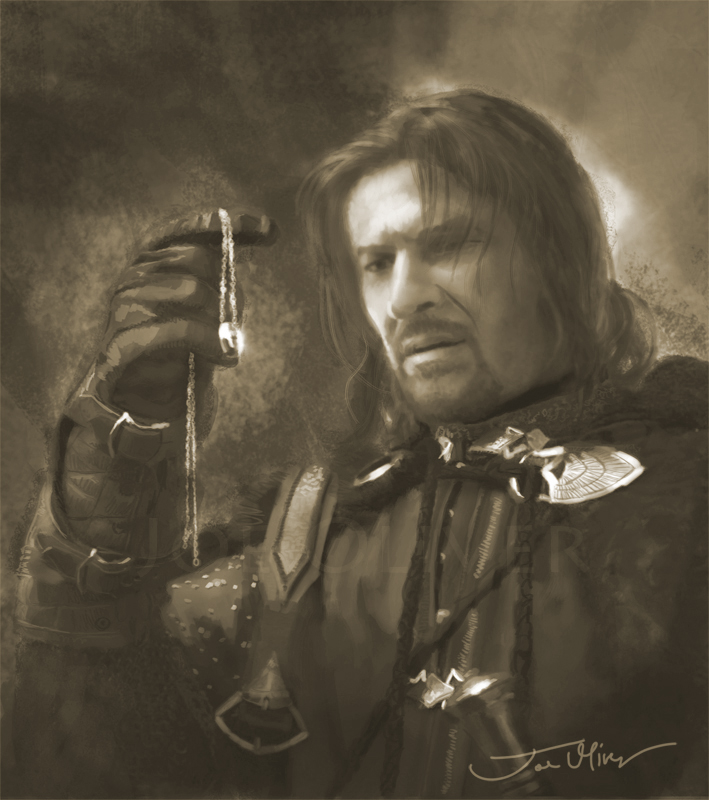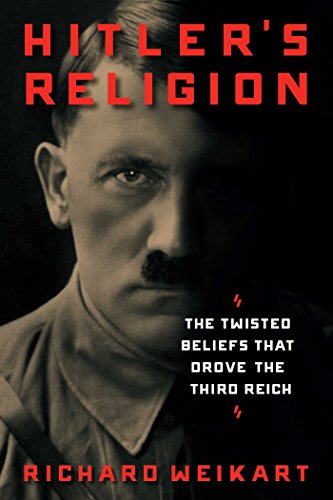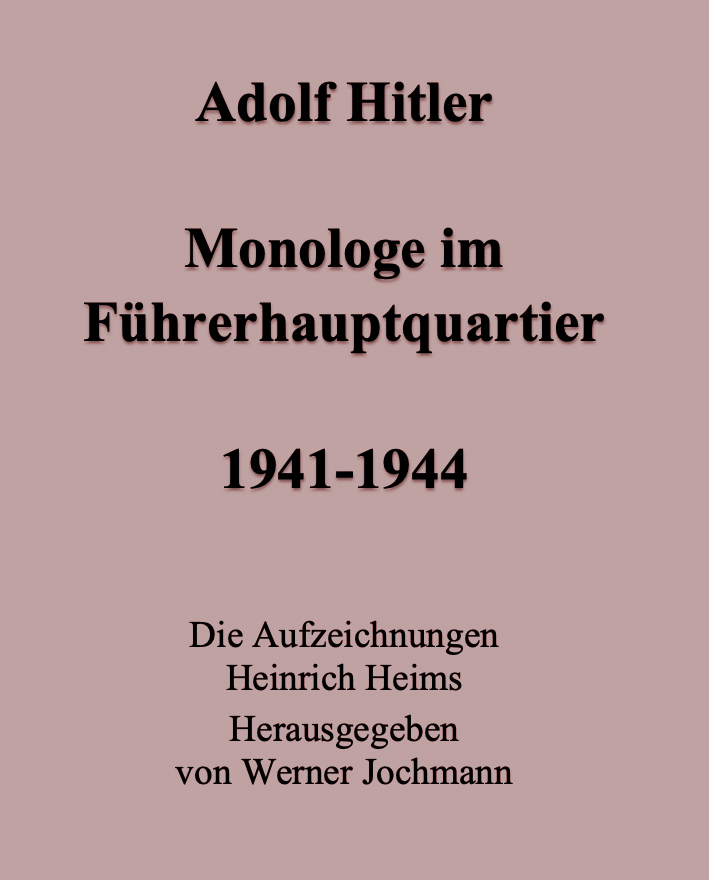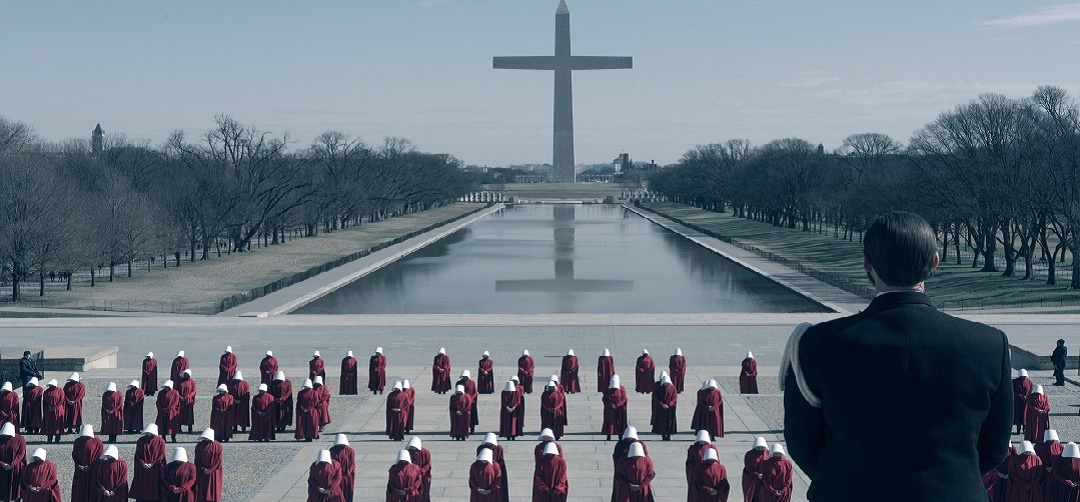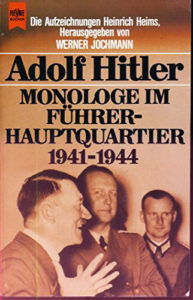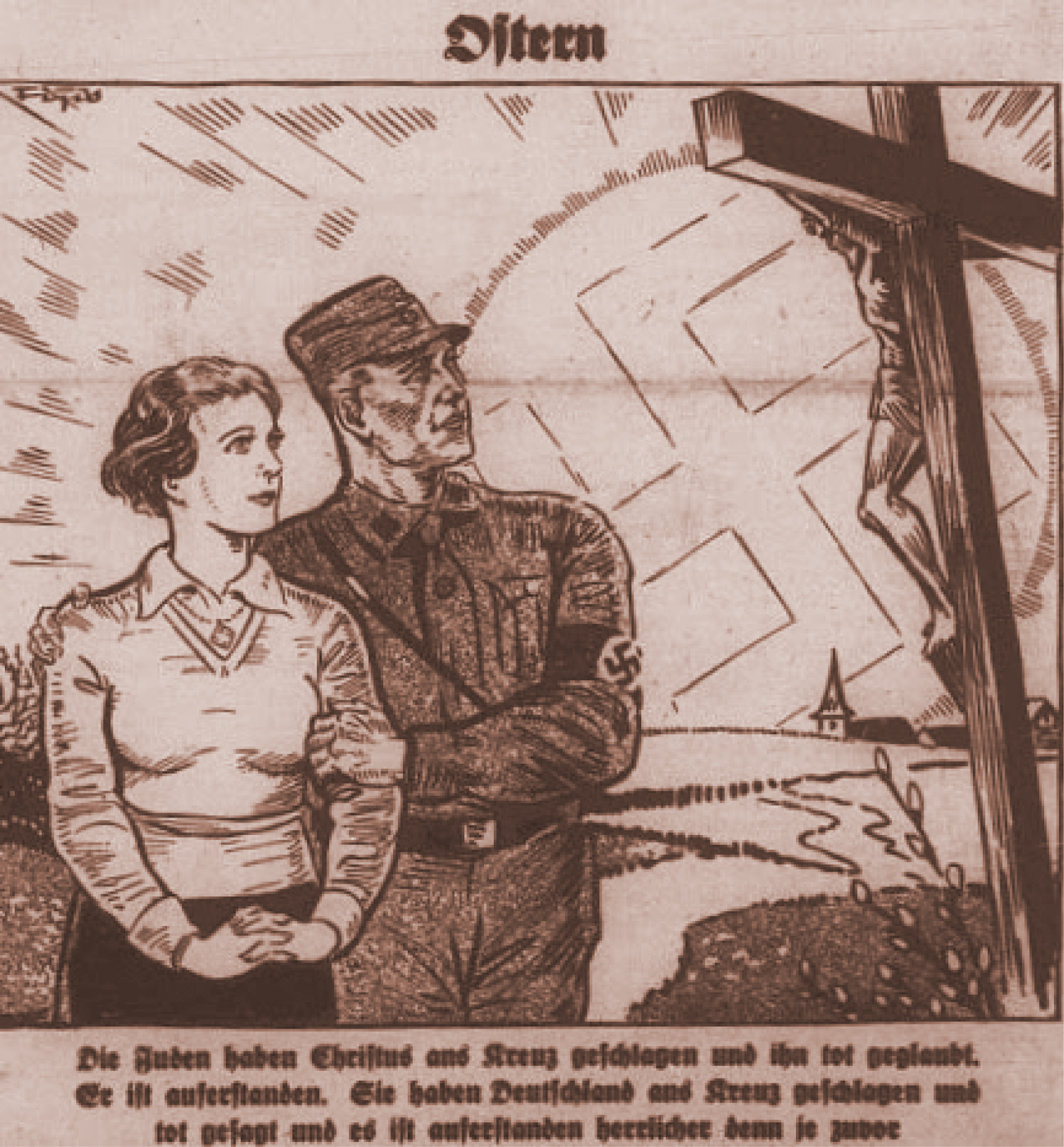– For the context of these translations click here –
Ignorant, criminal on a grand scale and a good Catholic
It is true that we cannot judge that epoch, an epoch of ignorant, superstitious, fallacious and bloody people, with our modern—oh so ethical—modern standards: we must not act anachronistically against history! But can we and should we still measure that era, a thoroughly Christian era, by Christian criteria, by certain biblical criteria, such as the precepts of the Sermon on the Mount or the commandments of the Decalogue? And precisely because we look at it in this way, shouldn’t we recognise it by its fruits?
The Catholic author Daniel-Rops, too, feels a prevailing sense of ‘horror’ at ‘the continually repeated spectacle of crimes that are frankly unspeakable’. ‘Everywhere there is blatant violence, ready to explode at any moment. Nothing stops it: not family ties, not the precepts of the most elementary decency and not even the Christian faith’. Not even that? Didn’t the faith allow all that to go on? Didn’t it provide what we might call the supreme consecration, the endorsement of the status quo? Didn’t the faith pray for the rulers, the generals, the cutthroats? Didn’t it pray before wars, during wars, and after wars? Didn’t it participate in wars and plundering, or make continual donations to the Church from the spoils of war or plunder? Didn’t it fatten the powerful on the misery of the masses?
The Church unreservedly sided with the scoundrels and butchers. And while the violent acts of the kings are more and more unbridled, the chain of blood vengeance never ends, the murders of relatives multiply precisely among the great ones: the Catholic son kills the Catholic father, the brother kills the brother who is as Catholic as him, the Catholic uncle kills the Catholic nephew, and while the robberies of the Merovingian kings occur, the annihilated enemies who were Germanic princes, and the snatched booty of gold, jewels and weapons could hardly be hidden any longer under the underground vault of the palace of Braine; the episcopate saw in those crowned Catholic criminals the legitimate representatives of state authority, the representatives of God on earth.
Since the Church sided with the Merovingian potentates from the beginning as their ally, it was able to develop as it hadn’t done for a long time. Its influence grew, and both the secular and monastic clergy became incredibly wealthy. And to a large extent the almost permanent catastrophes, and the terror that rarely ceased, greatly favoured the appearance of donations to the Church. ‘As people expected protection and help from them, and were continually threatened by looting, arson, murder and violence, they turned to the Church and its saints’ (Bleiber).
The Church thought nothing of opposing this. Its wheat increased. It was only between 475 and the beginning of the 6th century that the number of Gallic monasteries increased tenfold; but in the first half of the following century more abbeys were built there than ever before or since. And looking back to the middle of the 7th century, a modern researcher even speaks of ‘an episcopal and monastic state’ (Sprandel). The episcopate, which was a ‘great power’ not only economically but also politically (Dopsch), played almost as decisive a role in the kingdom as the absolute sovereign monarchy did in the Church. The two were closely linked and intertwined, for the ruler also had to show himself devotissimus of the Church and, at least in the Carolingian period, was regarded ‘as a clergyman’ (Brunner).
______ 卐 ______

Editor’s note: Chess, as it is known today, emerged in Medieval Europe as an evolution of a Persian game which in turn evolved from an Indian game (the earliest reference to the latter is found in the Mahabharata: an epic-religious text of the Aryans from the 3rd century BC).
As can be seen in the picture, two bishops flank the king and queen in the original formation of the game, already in its European incarnation.
______ 卐 ______
The whole period, cruel in the extreme and extraordinarily fraudulent, was at the same time very ‘pious’. Attendance at Sunday mass was widespread ‘at the ringing of the bells they crowded into the churches’ (Pfister). Eucharistic communion became almost as widespread. Church singing was zealously cultivated. Almost everyone attended the processions. Catholic festivals were celebrated as great popular festivals. People prayed before they began to eat, and not a glass of water was drunk without first making the sign of the cross. And it was not only God who was prayed to, but all imaginable saints were invoked continually. Numerous churches were built with marble columns and marble-covered walls, stained glass windows and many paintings; the rich even had their own domestic chapels. The kings dealt with saints, as Theuderic I did in 525-526 with St Gallus in Cologne (who set fire to a temple there, ‘because none of the foolish pagans were to be seen’ after which the arsonist took refuge in the royal palace). Childebert I visited a saint. Queens, like Radegund for example, washed the feet of bishops. Crass superstition was commonplace. Relics from Rome and Jerusalem were hoarded, and pilgrimages were made, looking for health, to the supposed tombs of the apostles.
In a word, there was a deep conviction ‘of the reality and power of the living God’ (Heinsius). There abounded ‘a vigorous and fresh faith in God and his providence; one dealt with the divine, not as an abstraction or an idea, but as a very real force. This conviction prevailed among all, shared by ecclesiastics and laymen without distinction’. The first half of the 7th century was openly regarded as ‘a flourishing period of the Frankish Church’ (Hauck), which was seen to be ‘deeply rooted in the people of the Franks’ (Schieffer), and the bishops and episcopal synods ‘applied to the work’ (Boudriot).
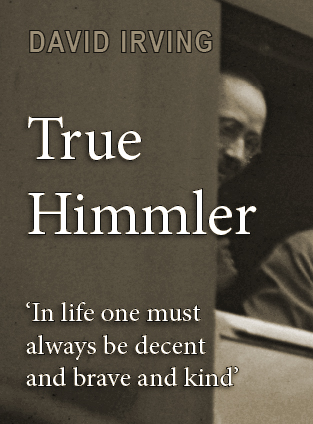 I won’t read the first chapter for the moment because I am pained by David Irving’s hypothesis: that the Allies assassinated Himmler when he was taken prisoner, that it wasn’t suicide. But I will be reading my hard copy of this thick volume over the next few weeks until I finish it. So far as I have read the second chapter, Irving’s style is very readable, and I think anyone who considers himself sympathetic to National Socialism should buy it from the author’s bookstore.
I won’t read the first chapter for the moment because I am pained by David Irving’s hypothesis: that the Allies assassinated Himmler when he was taken prisoner, that it wasn’t suicide. But I will be reading my hard copy of this thick volume over the next few weeks until I finish it. So far as I have read the second chapter, Irving’s style is very readable, and I think anyone who considers himself sympathetic to National Socialism should buy it from the author’s bookstore.